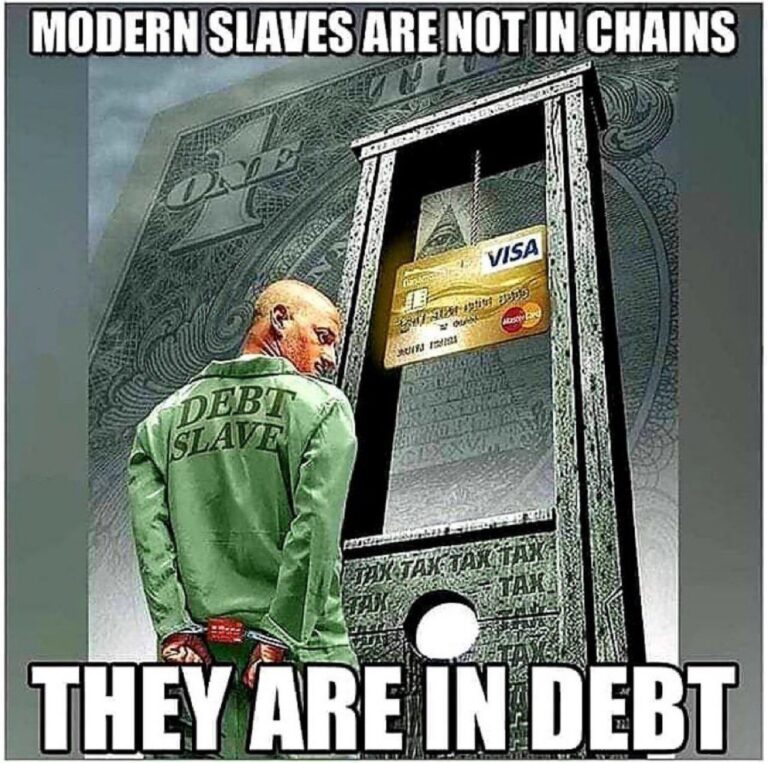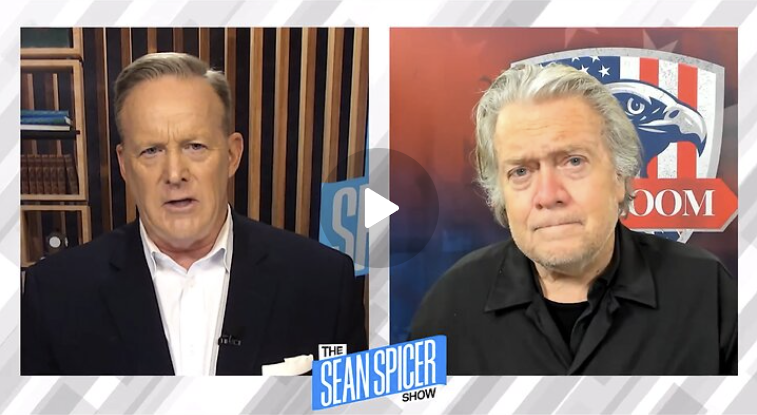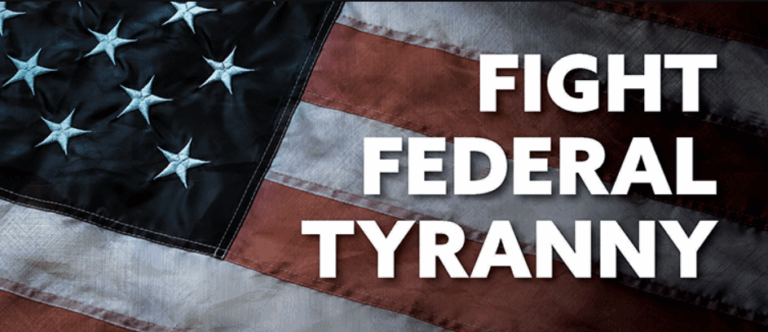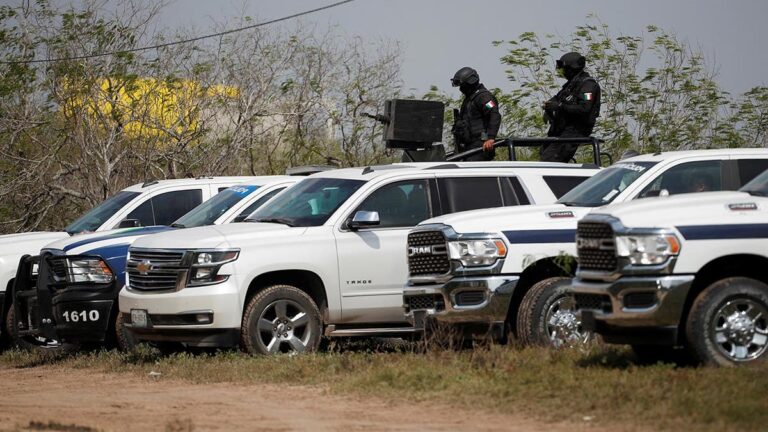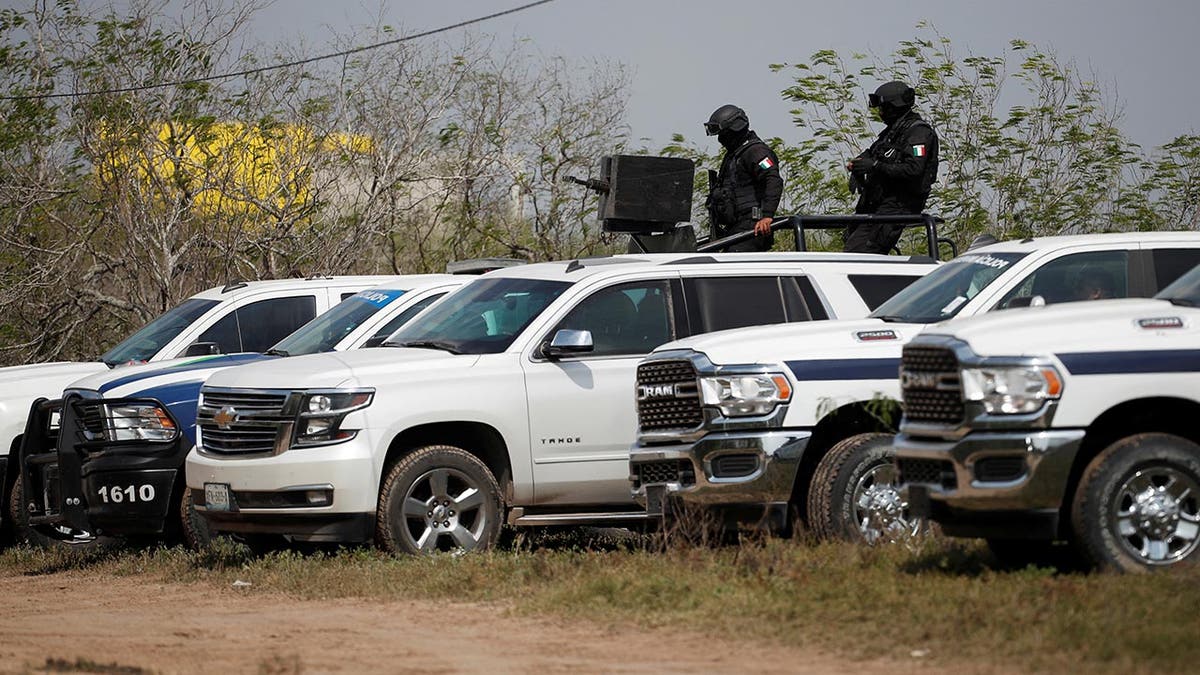
San Diego, CA – May 16, 2025 – On May 9, 2025, 17 family members of Sinaloa Cartel leaders, including relatives of Joaquín “El Chapo” Guzmán and his son Ovidio Guzmán López, crossed into the United States at the San Ysidro border crossing in San Diego, turning themselves in to U.S. authorities. This unprecedented event, confirmed by Mexico’s security chief, has sparked intense speculation about a potential deal with the U.S. government and raised questions about its implications for the ongoing battle against one of the world’s most powerful drug trafficking organizations.
The Surrender: What Happened?
The group, reportedly including one of El Chapo’s ex-wives and relatives of Ovidio Guzmán, entered the U.S. under what appears to be federal protection. According to reports, the surrender is tied to ongoing plea negotiations involving Ovidio Guzmán, a high-ranking Sinaloa Cartel figure who was extradited to the U.S. in 2023 and faces charges related to drug trafficking and money laundering. Posts on X suggest the family members may have been offered safety in exchange for cooperation, with some claiming the cartel would target relatives left in Mexico if no deal was struck.
The surrender was a carefully orchestrated move, with U.S. authorities, including the FBI, prepared to receive the group. While details remain scarce, the event has been widely reported across U.S. and Mexican media, with outlets like NBC San Diego and CBS News noting the significance of such a large group of cartel-affiliated individuals crossing the border simultaneously. Mexican President Claudia Sheinbaum publicly questioned why the U.S. allowed the entry, hinting at tensions over the lack of prior communication with Mexican authorities.
Context: The Sinaloa Cartel and U.S.-Mexico Dynamics
The Sinaloa Cartel, once led by El Chapo, remains a dominant force in global drug trafficking, responsible for smuggling vast quantities of fentanyl, methamphetamine, and other drugs into the U.S. El Chapo is serving a life sentence in a Colorado supermax prison, but his sons, known as “Los Chapitos,” including Ovidio, have continued to run key factions of the cartel. The organization’s influence extends deep into Mexican politics and society, complicating efforts to dismantle it.
The surrender comes amid heightened U.S.-Mexico cooperation on drug enforcement, exemplified by the recent extradition of 29 cartel leaders to the U.S. in February 2025. However, experts argue that such high-profile actions, including the May 9 surrender, may not significantly disrupt the flow of drugs across the border. The cartel’s decentralized structure allows it to adapt quickly, with new leaders and operatives filling vacancies left by arrests or defections.
Implications: A Deal with the Devil?
The surrender has far-reaching implications for both U.S. law enforcement and U.S.-Mexico relations:
- Plea Bargaining and Intelligence Gathering
The surrender is likely part of a broader strategy to secure cooperation from Ovidio Guzmán or other cartel figures. By offering safety to family members, U.S. prosecutors may be leveraging personal incentives to extract valuable intelligence on cartel operations, supply chains, and corrupt officials. Posts on X speculate that the 17 relatives are “telling it all,” though no official confirmation of their testimony has emerged. This move could yield significant breakthroughs in dismantling cartel networks, but it also risks backlash if the public perceives it as leniency toward criminals. - Strained U.S.-Mexico Relations
Mexico’s government, led by President Sheinbaum, has expressed frustration over the lack of transparency surrounding the surrender. The incident highlights ongoing tensions in bilateral efforts to combat drug trafficking, with Mexico wary of U.S. interventions that bypass its sovereignty. Sheinbaum’s public questioning of the U.S. decision to admit the family members signals potential diplomatic friction, especially as Mexico grapples with internal cartel violence. - Cartel Retaliation and Instability
The surrender could provoke retaliation from rival factions within the Sinaloa Cartel or competing groups like the Jalisco New Generation Cartel (CJNG). Family members left behind in Mexico may face increased danger, as cartels often target relatives to punish defectors. This dynamic could escalate violence in Sinaloa and other cartel strongholds, further destabilizing the region. - Public Perception and Political Fallout
In the U.S., the surrender has fueled polarized reactions. Some posts on X praise the move as a triumph of U.S. pressure, crediting the Trump administration’s tough stance on cartels, including threats of military action at the border. Others question why the story has not received more media coverage, with one user asking, “WHY IS THIS NOT GETTING THE NEWS COVERAGE?” The event could shape public discourse on border security and drug policy, especially as the 2026 midterm elections approach.
Skepticism and Unanswered Questions
While the surrender is a significant development, it’s worth approaching the narrative with skepticism. The lack of detailed public information about the identities of the 17 individuals and the specifics of any deal raises questions about the U.S. government’s transparency. Reports of a “secret pact” with cartel figures, as alleged by some outlets, remain unverified and may exaggerate the event’s scope. Moreover, the surrender’s long-term impact on the Sinaloa Cartel’s operations is uncertain, given the organization’s resilience.
Looking Ahead
The May 9 surrender of 17 Sinaloa Cartel family members at San Ysidro marks a dramatic moment in the fight against drug trafficking, but its true significance will depend on what follows. Will the U.S. secure actionable intelligence to disrupt the cartel’s operations? Will Mexico and the U.S. resolve their diplomatic tensions to strengthen cooperation? And can such high-profile actions translate into meaningful reductions in drug smuggling and violence?
For now, the event underscores the complex interplay of law enforcement, diplomacy, and cartel dynamics at the U.S.-Mexico border. As one expert noted, “Indictments and surrenders won’t slow the flow of drugs” without systemic changes to address demand and corruption. The surrender may be a tactical win, but the war against the cartels is far from over.
